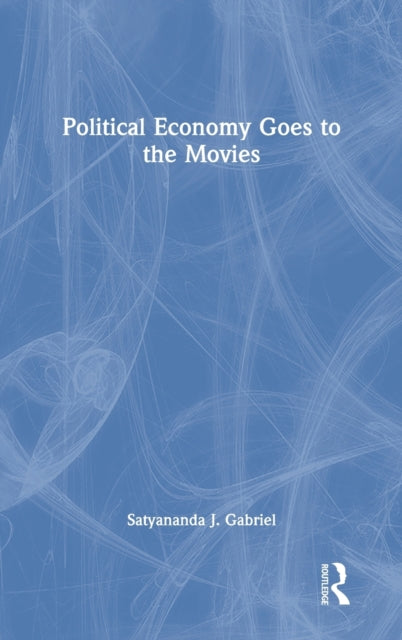Satyananda J.Gabriel
Political Economy Goes to the Movies
Political Economy Goes to the Movies
YOU SAVE £6.96
- Condition: Brand new
- UK Delivery times: Usually arrives within 2 - 3 working days
- UK Shipping: Fee starts at £2.39. Subject to product weight & dimension
Bulk ordering. Want 15 or more copies? Get a personalised quote and bigger discounts. Learn more about bulk orders.
Couldn't load pickup availability
- More about Political Economy Goes to the Movies
Political Economy Goes to the Movies provides an introduction to political economy using popular films and documentaries as the objects of analysis. It helps readers understand and analyze the economic and related political, cultural, and ecological relationships depicted in selected films through the lens of past and present economic theories. Film exposes the weakness of mainstream economics and provides further data for analyzing the realism of social interaction. It is essential reading for students and scholars of political economy in economics, politics, pluralist economics, and Marxist economics.
Format: Hardback
Length: 202 pages
Publication date: 15 November 2021
Publisher: Taylor & Francis Ltd
Political Economy Goes to the Movies offers an accessible introduction to political economy by examining a diverse range of popular films and documentaries as analytical subjects. Through this lens, readers gain a deeper understanding and ability to analyze the economic, political, cultural, and ecological relationships portrayed in selected films. This exploration is facilitated by drawing upon past and contemporary economic theories and engaging in discussions about the dynamic influence of economics on individual life chances.
While economic theories may provide abstract frameworks for understanding the world, films offer a more tangible and relatable perspective. They provide a window into a world of income inequality, child labor in mills and mines, local rebellions against land seizures, and wars triggered by economic conflicts. Many films mirror real-world events, offering a vivid illustration of the complex interplay between political, economic, cultural, and ecological factors. Some films depict the interconnected and overlapping political, economic, cultural, and ecological contexts within and between different economic relationships, while others showcase "catastrophes" such as economic depressions, disruptive social transitions, violent revolutions, and existential environmental degradation. These films allow us to observe a wide range of human social relationships and related problems, even allowing us to contemplate pivotal moments in our species' history. However, they do not necessarily provide insight into the underlying reasons for these relationships and problems.
Mainstream economics, conversely, faces limitations in its ability to analyze certain aspects of the human experience. Film exposes this weakness of the mainstream model, offering a different avenue for understanding economic phenomena. By referencing documented historical social events and employing behavioral economics, films provide additional data for assessing the realism of social interactions portrayed within them. This interdisciplinary approach enhances our understanding of the complex dynamics at play in the world and sheds light on the limitations of traditional economic theories.
In conclusion, Political Economy Goes to the Movies provides a unique and engaging approach to understanding political economy by utilizing popular films and documentaries as analytical tools. Through the lens of past and present economic theories and in the context of debates over the influence of economics on individual life chances, the book helps readers gain a deeper appreciation of the economic, political, cultural, and ecological relationships depicted in film. By exploring events and contexts absent from traditional economic analysis, films offer a valuable perspective that challenges the limitations of mainstream economics and expands our understanding of the human experience.
Dimension: 234 x 156 (mm)
ISBN-13: 9781138298330
This item can be found in:
UK and International shipping information
UK and International shipping information
UK Delivery and returns information:
- Delivery within 2 - 3 days when ordering in the UK.
- Shipping fee for UK customers from £2.39. Fully tracked shipping service available.
- Returns policy: Return within 30 days of receipt for full refund.
International deliveries:
Shulph Ink now ships to Australia, Belgium, Canada, France, Germany, Ireland, Italy, India, Luxembourg Saudi Arabia, Singapore, Spain, Netherlands, New Zealand, United Arab Emirates, United States of America.
- Delivery times: within 5 - 10 days for international orders.
- Shipping fee: charges vary for overseas orders. Only tracked services are available for most international orders. Some countries have untracked shipping options.
- Customs charges: If ordering to addresses outside the United Kingdom, you may or may not incur additional customs and duties fees during local delivery.


